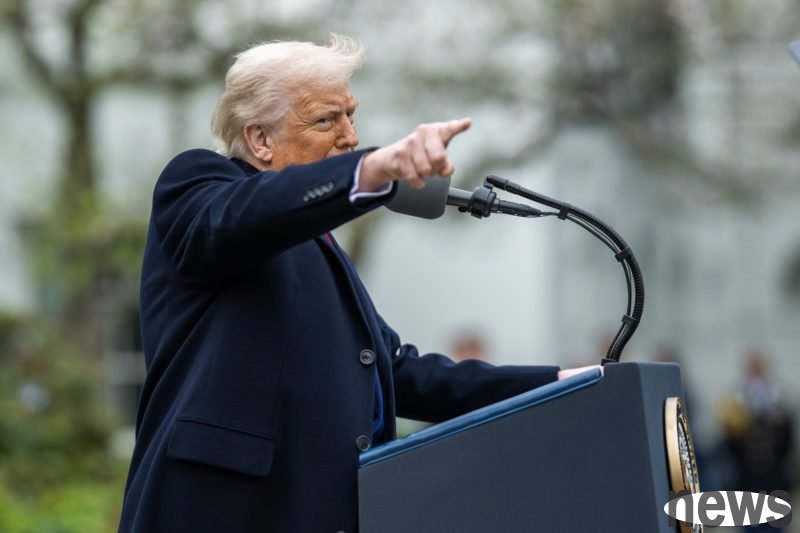
According to the New York Times Report, Washington and Taipei are undergoing unprecedented tight exams. US President Trump announced on July 31 that Taiwan will receive 20% new tax on exports to US goods, which will have a huge impact on Taiwan and global semiconductor industries. What is grievance is that the United States is right to balance Taiwan's main export product, the semiconductor contract, which has broken bad taxes.
Days before the announcement of the tax, Taiwan President Tsing Teh was originally scheduled to travel to Latin America, passing through New York and Dallas on the way, which the Trump administration requested to cancel. Although Beijing will definitely protest, Taiwanese politicians usually use this type of overseas development to show close ties with the United States. However, the cancellation of the overseas outbreak this time will undoubtedly add uncertainty to the sensitive relationship between the United States and Taiwan.
The report quoted Taiwanese officials as saying that Taiwanese representatives had conducted intensive discussions in Washington for several weeks and have not yet reached a comprehensive trade agreement. The Executive Yuan announced on the 1st that the new tax hindered, claiming that the verdict has not yet ended. As part of the semi-conductor tax quarantine, the team pushed in the affirmative direction. Taiwan verdicts have gone to Washington four times, showing the urgency of reaching a agreement.
Market insiders pointed out that a major stalemate of the debate was the investment commitment amount. Japan and South Korea have agreed to invest tens of thousands of billions of dollars in the United States, far exceeding Taiwan's chip manufacturing Longtou's US investment in power. Although Trump praised Taiwan's $10 billion expansion in Arizona's $10 billion in tax closures when he first announced taxes in April, it is clear that Washington has high expectations for Taiwan's investment scale.
Semiconductors are one of the pillars of Taiwan's economics. Taiwanese companies produce most advanced semiconductors in the world. Various electronic products or applications, including smartphones to artificial intelligence, are core components. Data shows that the United States has become the largest buyer of Taiwan's products by the end of 2024, and China has been Taiwan's largest trade partner in the past 30 years.
However, there is a significant complexity in the tax collection of semiconductor industry. Among them, because its supply chain is extremely complex and professional, it is difficult to directly collect taxes on the industry. In addition, semiconductors usually enter the US market as parts for electronic products such as artificial intelligence servers, rather than independent finished products, so it is difficult to collect taxes in a single course. However, according to the Executive Yuan, Taiwan will seek preferential treatment regardless of the decision on the semiconductor tax.
When faced with Washington's approaching tax threats, Taiwan officials and enterprises have been actively seeking ways to reduce their impact. In March 2025, Taiwan expressed interest in buying natural gas from Alaska, which was seen as a way to show the US's willingness to cooperate. At the same time, NTU announced that it would increase its investment in the United States, which actually reflects strategic considerations under the US market and political pressure.
Pressure of course causes doubt. Because the Trump administration's argumentation strategy is not to be tempted, the United States has given nothing, and reconciling the argument requires mutual benefit from both sides, which highlights that Taiwan has a different status in the face of the US demand. Part of the reason is the time limit in the United States, that is, the United States and many countries are discussing at the same time, and Taiwan must negotiate as much as possible within a limited time period.
Taiwan tax threats are not a single policy of the Trump administration. Trump has said he would impose high taxes on more than 60 countries around the world, and he would take the lead in taking the lead. He publicly accused Taiwan's semiconductors of unfair advantages, and criticized Taiwan for supporting the US to fight against China, and invested too little in national defense. The U.S.-Taiwan relations are at a critical crossroads. The trade war surrounding semiconductors is not only an economic interest game, but also a strategic layout of the Indo-Pacific region, and a complex relationship with long-term allies.